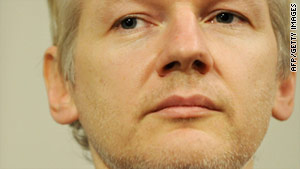I stole the title for this post from an independent student publication of the University of Buffalo. I mentioned online pornography in my last post and my thoughts on whether or not it is or should be protected. I started researching the topic of online pornography and different issues surrounding it and I think I am going to write my paper for this class on that topic.
While scouring the internet, I made a joke to the people around me that the campus police was going to come after me because of all the "online porn" searches I had in my google search bar (don't worry, I stayed away from the actual porn sites). It is funny, but it also seems like an interesting issue; can a University prohibit students using their network from looking at porn? I have heard stories about UND coming after people who download music illegally, and the article I read from the University of Buffalo said that their University allowed students to look at porn, as long as it wasn't in public and as long as it wasn't stolen material.
But, with all the porn piracy that is happening with tube sites and other areas of the internet, how can this be regulated? Also, how can you ensure that what students are looking at is not offending others or putting minors in harm's way (especially with dorms?).
Thursday, February 17, 2011
Thursday, February 10, 2011
Blog about (gasp!) Online Pornography
http://nymag.com/news/features/70985/
I came across this article and thought it was really interesting, especially in light of the obsecenity reading we did for today. The cases we read focused mainly on the issue of protecting children from pornography and the cases seemed to be left at a point where online pornography was okay, as long as people were taking "enough" precaution to prevent minors from acessing it. However, this doesn't really seem to make sense anymore with the increased development of online "tube sights" that have no regulation whatsoever and that are made up primarily of stolen or pirated material.
Obscene material is one that is not protected by the first amendment, but it is hard to believe that online porn is this accessible when there seems to be such a resistence to it. Another thing to consider though is how mainstream these online sights are becoming and how much money can be or is being made from these kinds of sights. I'm surpised that there has not been more recent cases regarding censoring of these kinds of sights (and maybe there are) and how the courts will rule on them.
I came across this article and thought it was really interesting, especially in light of the obsecenity reading we did for today. The cases we read focused mainly on the issue of protecting children from pornography and the cases seemed to be left at a point where online pornography was okay, as long as people were taking "enough" precaution to prevent minors from acessing it. However, this doesn't really seem to make sense anymore with the increased development of online "tube sights" that have no regulation whatsoever and that are made up primarily of stolen or pirated material.
Obscene material is one that is not protected by the first amendment, but it is hard to believe that online porn is this accessible when there seems to be such a resistence to it. Another thing to consider though is how mainstream these online sights are becoming and how much money can be or is being made from these kinds of sights. I'm surpised that there has not been more recent cases regarding censoring of these kinds of sights (and maybe there are) and how the courts will rule on them.
Thursday, February 3, 2011
WikiLeaks Nominated for Nobel Peace Prize

“I think it is important to raise a debate about freedom of expression and that truth is always the first casualty in war, WikiLeaks wants to make governments accountable for their actions and that contributes to peace.’’
This is what Snorre Valen, a 26-year-old legislator from Norway’s Socialist Left Party, said when he nominated WikiLeaks for the nobel peace prize on Tuesday.
This is really interesting, and it also serves a nice compliment to the reading assigned today. In the New York Times Company v. United States case, the court repeatedly mentions that the essential purpose of the First Amendment was to protect the people from the government and allow democracy to fully function. "Only a free and unrestrained press can effectively expose deception in government." The quote from the case goes straight to the heart of why supporters of WikiLeaks think it is so important that the information be published.
I can understand both sides of the debate. The government is worried about national security and how other people are viewing its power and status during the war. On the other hand, the defenders of WikiLeaks say that it is advancing the struggle for free speech. The publishing of the information goes straight to the heart of what seems to be the essential issue of the first amendment. There is obviously a lot of information out there, and I think WikiLeaks is really testing the right to free and unrestrained press and freedom of information.
Subscribe to:
Comments (Atom)